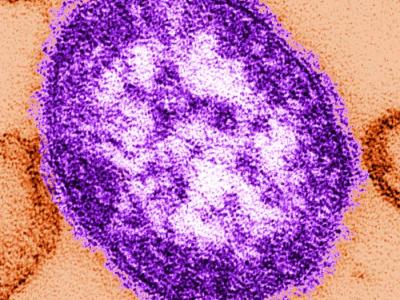H5N1 prevalence may surpass 10% in Egyptian backyard, market poultry
An Egyptian surveillance study found that while H5N1 avian flu viruses were uncommon on commercial poultry farms, more than 10% of backyard and live-market birds harbored the virus, according to a report in the Journal of Virology.
Throughout 2009 Egyptian and German scientists took tracheal and cloacal swabs from 22,024 farm poultry, of which 23 birds (0.1%) were positive by polymerase chain reaction for the H5N1 virus. In comparison, 151 (10.5%) of 1,435 birds in backyard flocks and 108 (11.4%) of 944 birds in live-bird markets were infected. Incidence was highest in spring and summer, particularly in backyard birds.
The team also sampled 1,297 wild birds of 28 different species in 2009 and 2010 and detected no H5N1.
They conclude that backyard flocks may play a key role in maintaining H5N1 in Egyptian poultry, especially in live-bird markets.
Jun 22 J Virol abstract
Global flu activity stays low, H1N1 still leads in detections
Global flu activity overall remained at relatively low levels over the past 2 weeks, with the 2009 H1N1 virus as the dominant strain but other seasonal viruses more prominent in some regions, the World Health Organization (WHO) said today.
Asia and Oceania experienced generally low levels of flu activity, with cocirculation of H3N2 and influenza B.
Vietnam recently reported a rise in H1N1 activity, and the same strain was linked to high levels of activity in Madagascar and South Africa.
Central and South America reported low-level H1N1 activity, while Europe and North America reported sporadic detections of influenza B.
Of the small number of influenza B viruses that were characterized, 71% belonged to the Yamagata lineage, which was not recommended for the Southern Hemisphere's current-season trivalent vaccine, but is the B strain advised for the Northern Hemisphere's upcoming season.
Jun 24 WHO influenza virologic update
Dengue, yellow fever mosquitoes found in central California
The aggressive Aedes aegypti mosquito—which can transmit dengue, yellow fever, and chikungunya—has been identified in two adjacent central California counties, according to news reports cited yesterday by ProMED-mail, the disease-tracking service of the International Society for Infectious Diseases.
The mosquito species, which is known to bite not just at dawn and dusk but also during the day, was confirmed in the city of Madera in Madera County on Jun 20, Sierra News reported. A day later it was identified in Fresno County, according to a local TV news report.
"Our goal is to eradicate this population" said Leonard Irby, Madera County's mosquito-control district manager. Officials have asked residents to avoid mosquito bites and to get rid of standing water that may serve as a breeding ground.
A ProMED moderator called the reports "not good news."
Jun 23 ProMED-mail post
International organization for immunization managers launched
An international organization was launched today with the aim of promoting "superior management" of immunization programs, according to the Sabin Vaccine Institute.
The International Association of Immunization Managers (IAIM) is being supported by a 5-year grant from the Bill & Melinda Gates Foundation, said the Sabin Institute, which will carry on IAIM's daily operations.
In a press release, the institute said the group's governing body, the IAIM ad hoc Governing Council, is holding its first meeting today in Washington, DC.
IAIM's overall goal is to promote the achievement of national, regional, and international immunization goals. Objectives include providing a forum through which managers can discuss best practices, building and supporting international and regional networks of managers, and offering opportunities for managers to improve their technical and leadership capacity.
David Salisbury, immunization director for the United Kingdom Department of Health, is president of the Governing Council.
Jun 24 Sabin press release










